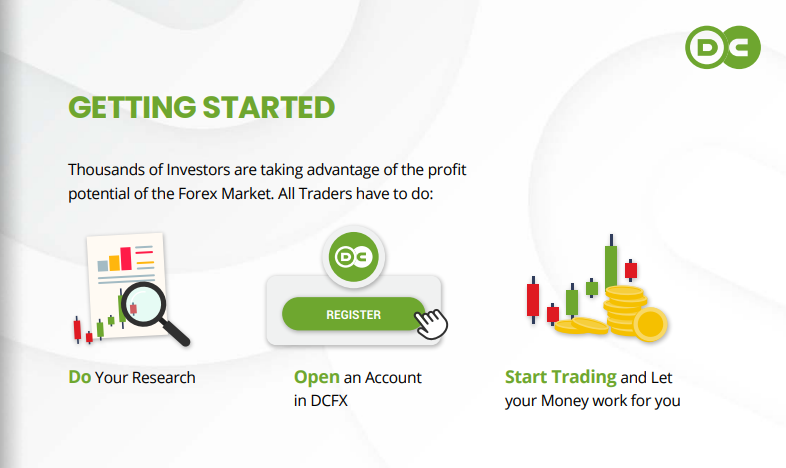You can learn everything about trading. This is the last chapter of the Beginner Course, we are
going to talk about the Fundamentals of Economics.
In this chapter, you will learn about:
- Understanding and Impact of Fundamentals
- The most important Fundamentals Economic Indicators
- Interest Rate as the most important indicator
- Correlation between Inflation and Interest Rate
- Central Bank Economic Indicator
WHAT IS FUNDAMENTALS?
Information that contributes to the
Financial or economic well-being
information of a currency. The key to
earning money for traders in the Forex
market is understanding fundamentally
what is in the global economy that makes
traders believe a currency is going to get
stronger or weaker.
Investors make decisions of trade based
on watching the fundamentals by
understanding global economy that
affects the currency valuation.
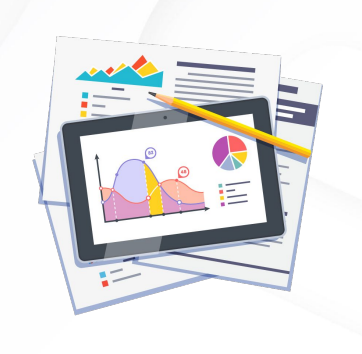
FUNDAMENTALS IMPACT
Example:
If the economic fundamentals in the
United States are improving, the U.S.
dollar (USD) will most likely be getting
stronger because Forex investors will be
buying dollars.
Conversely, if the economic fundamentals
in the United States are declining, the U.S.
dollar (USD) will most likely be getting
weaker because Forex investors will be
selling dollars.

NOT ALL ECONOMIC INDICATORS ARE IMPORTANT
Globalization has brought us all closer
together and has brought millions of
pieces of information to our fingertips on
a daily basis. Part of becoming a
successful Forex investor entails learning
how to ignore most of the news and
information that bombards you every day
so you can focus on the important
information.

Many fundamental economic
announcements that you do not have to
pay much attention since not all
economic indicators are important.
For example: unemployment in Ireland is not
as important as unemployment in
The United States.

THE MOST IMPORTANT FUNDAMENTAL ECONOMIC INDICATORS
One great way to take advantage of
fundamentally driven price movement is
to watch the news.
Remember, it is ultimately large
institutional investors who move the
Forex market so you want to watch the
same things these investors are watching
to more accurately predict what moves
they will make so you can take advantage
of those movements.

The most important fundamental economic indicators, as follows:
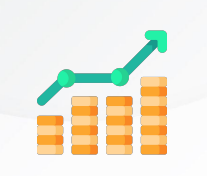

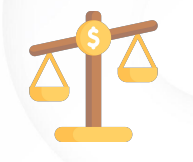
Interest Rate
Economics Strenght
Capital and Trade Flow
INTEREST RATES: THE MOST IMPORTANT ECONOMIC INDICATOR
Interest rates is a measure of the
compensation that lenders receive from
borrowers in exchange for a loan and rule
the Forex market.
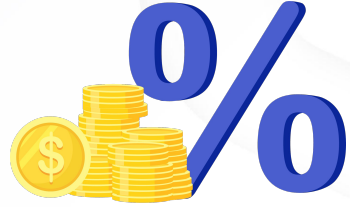
Currencies representing economies with
higher interest rates tend to be stronger
than currencies representing economies
with lower interest rates.
Investors are always looking for the
greatest return possible on their
investments, and economies with higher
interest rates usually have higher yields
on their investments.

INTEREST RATES: HOW DOES THIS AFFECT VALUE THE CURRENCY?
Imagine you are looking for a place to put
your money and you see two banks. The
bank on the right side is offering to pay 6
percent interest and The bank on the left
side is only offering to pay 2 percent
interest on any money you deposit there.
Naturally, you would choose the bank
offering to pay 6 percent interest which
give a better rate of return on your
investment.

The same principle applies to economies
and their respective currencies. You are
most likely going to invest in the United
Kingdom who gives 6 percent interest
rate.
As more people put their money in
investments in the United Kingdom,
demand for British pounds (GBP)
increases. Basic economics tells us that as
demand increases, the value of the
British pound (GBP) also increases.

INTEREST RATES: THE MOST IMPORTANT CENTRAL BANKS
As Interest rates rule the Forex Market,
Successful traders always watch Central
Banks closely to see whether raise
interest rates, lower interest rates or
leave interest rates unchanged in the
future.

The most important central banks are as follows:
- United States—Federal Reserve (The Fed)
- European Union—European Central Bank (ECB)
- United Kingdom—Bank of England (BOE)
- Japan—Bank of Japan (BOJ)
- Switzerland—Swiss National Bank (SNB)
- Canada—Bank of Canada (BOC)
- Australia—Reserve Bank of Australia (RBA)
- New Zealand—Reserve Bank of New Zealand (RBNZ)
INFLATION IMPACTS INTEREST RATES
Inflation is a general rise in prices for
goods and services. One extremely
important economic indicator a central
bank watches when making their
interest-rate decisions are inflation.

For example, you most certainly pay
more for a liter of milk or a loaf of bread
than you did 10 or 20 years ago. You’ve
probably also heard people from earlier
generations comment on how expensive
everything is these days. We all deal with
inflation.
Moderate inflation is generally accepted
as a natural by-product of economic
growth. Too much inflation, however, can
hurt an economy.

INFLATION IMPACTS INTEREST RATES
Example :
Inflation ran rampant in Germany after
World War I. Brutal economic instability
caused the dramatic devaluation of the
German mark. You can get a sense of just
how bad the situation was by looking at
the price of German postage stamps. In
April 1921, it cost approximately 0.60
German marks to mail a letter from one
city to another.

However, by December 1923—merely 15
months later—it cost approximately
100,000,000,000 marks to mail that same
letter from one city to another.
While this is certainly an extreme
example, it drives the point home that
inflation will always be a part of our lives.

CENTRAL BANKS LOOKOUT FOR RISING INFLATION
Central banks are always on the lookout
for rising inflation. When they see
inflation rising to uncomfortable levels,
they do whatever they can to curb that
growth. One tool central banks use to
curb inflation is interest rates—central
banks can combat rising inflation by
raising interest rates.

Higher interest rates make it more
difficult for businesses and individuals to
borrow money to buy and build new
items, which slows economic growth and,
as a result, lower inflation.
As a Forex investor, you want to watch
inflation rates to get a glimpse into what
central banks may do with their interest
rates. If inflation is rising, central banks
will most likely raise interest rates, which
is good for the representative currency of
that economy.

TWO ECONOMIC INDICATORS
Traders should watch the following
indicators to get an idea of what Central
Banks is looking at:
Consumer Price Index (CPI)
The economic indicator that measures
how much a basket of goods that
consumers regularly buy costs. The more
money consumers have to spend on
essential goods and services, the less
the money they have to spend on extra
goods and services.

Producer’s Price Index (PPI)
The economic indicator that measures
how much producers must pay for the
raw materials they use to produce their
finished goods. If prices for producers are
rising, they will most likely pass those
costs onto consumers.

